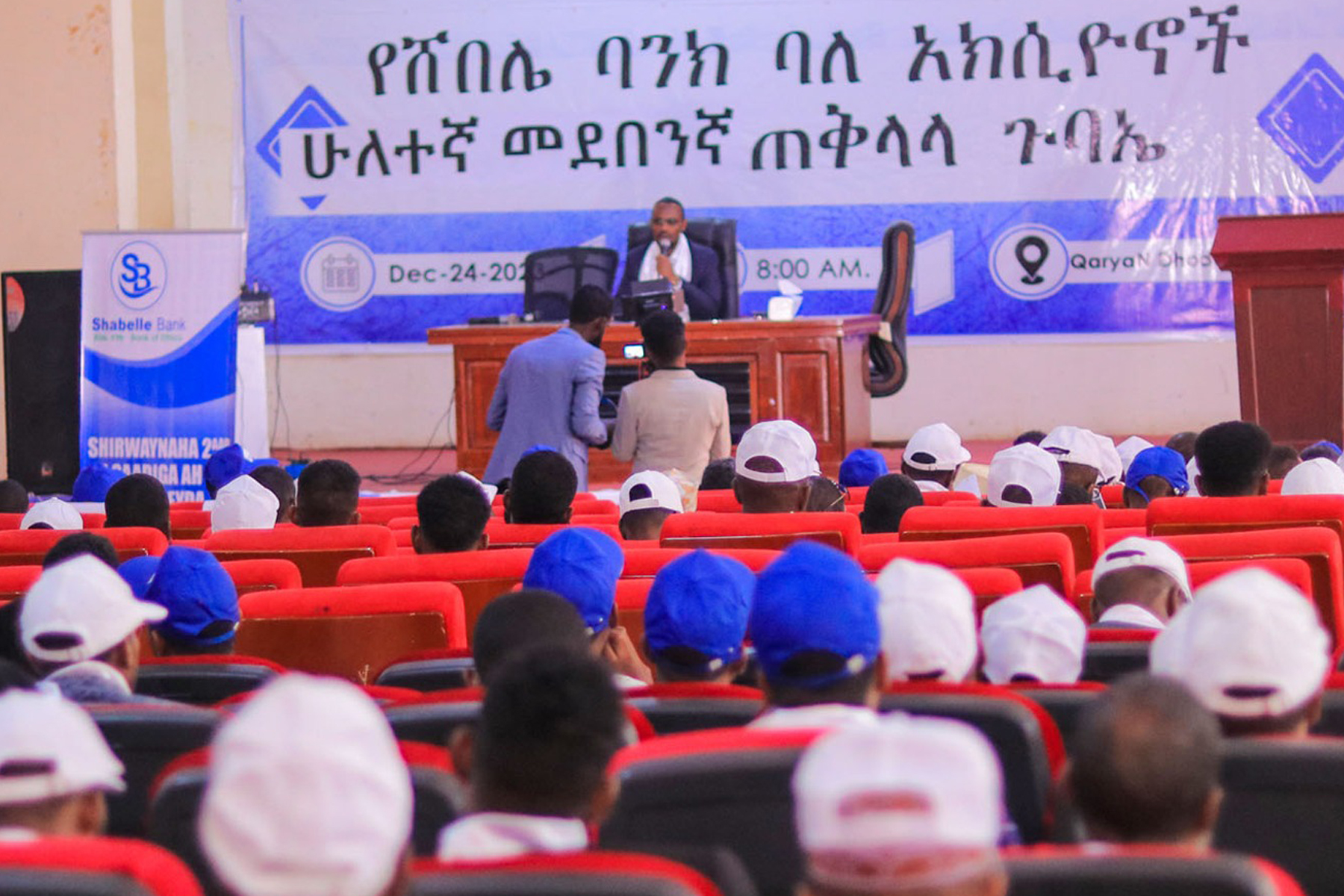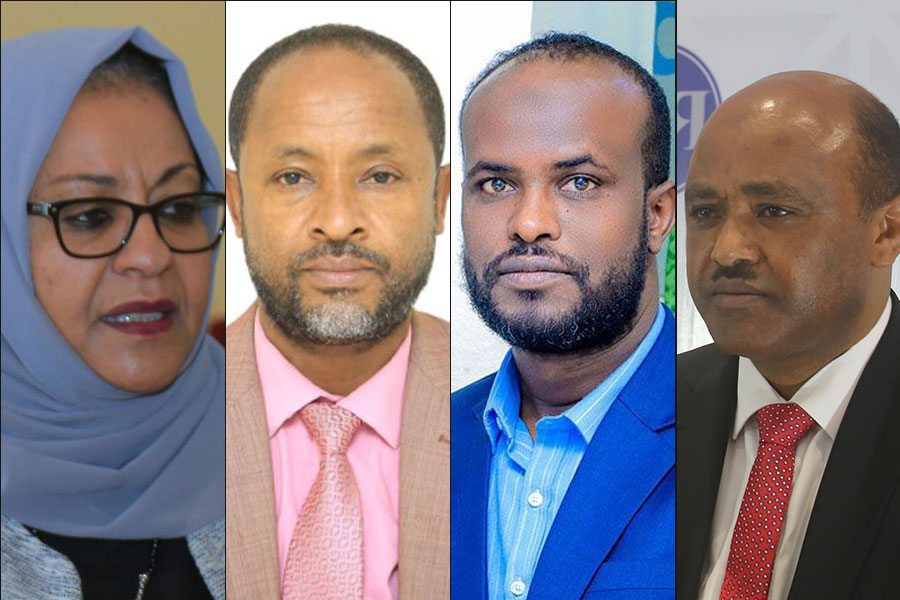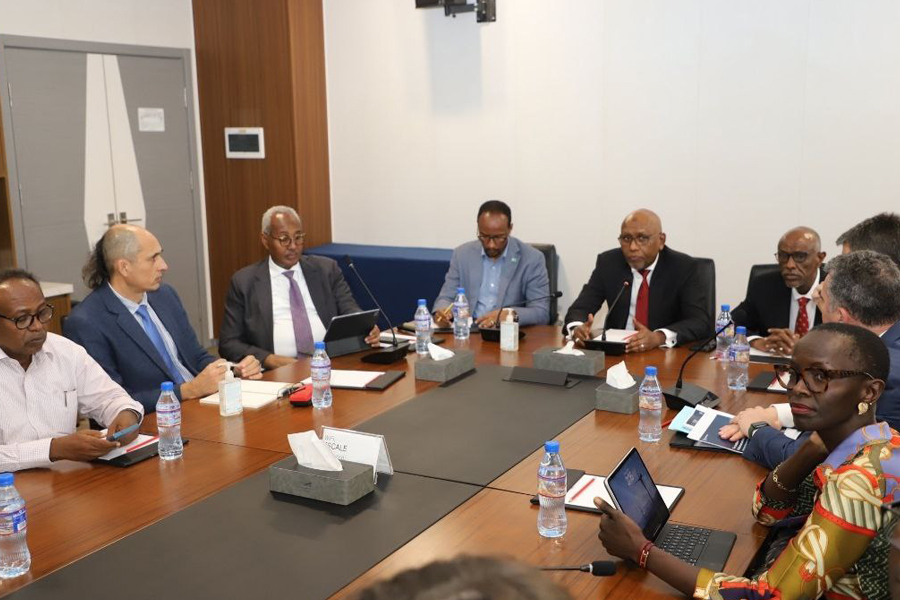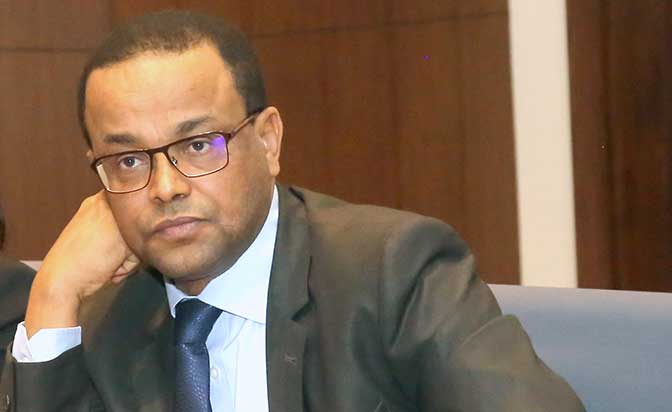
Fortune News | Apr 06,2024
Awash Bank continued to lead the private commercial banking industry with its most recent earnings results, amassing a huge net profit and the highest earnings per share (EPS) among competitors.
In the last fiscal year, the Bank was able to net 2.5 billion Br in profit, registering a 65pc increase from the preceding year. Its EPS also spiked by 89 Br to 632 Br. The EPS of the Bank is the highest recorded in the industry over the past five years.
The EPS rose despite the 49pc capital injection that pushed paid-up capital to 4.4 billion Br, making Awash the highest capitalised bank in the country. The Bank plans to increase its paid-up capital to six billion Birr by next June and 12 billion Br in three years.
The management of AIB should be applauded for such impressive performance, according to Abdulmenan Mohammed, a financial statement analyst who closely follows the financial reports of banks.
Last financial year was a mix of challenges and opportunities to the banking industry, according to Tabor Wami, board chairperson of Awash.
"Political reform was the opportunity," said Tabor, " while relatively elevated inflation, a recently relaxed regulatory framework, political instability and stiffer competition in the industry were among the challenges."
CEO Tsehay Shifraw attributes the strategic plan the Bank adopted recently for the positive performance. Dubbed "Vision 2025," the strategy incorporates a ten-year road map, a five-year plan and a yearly activity plan. It covers the Bank’s target plan in human resources, service provision and organisational structure.
A massive increase in interest income, fees and commissions, gains on foreign exchange dealings and other income positively contributed to the rise in profit of Awash.
Awash Bank Financial Performance 2018/19
AIB’s interest on loans, advances, NBE bonds and other deposits surged by 42pc to six billion Birr.
This must have been mainly due to a massive increase in loans and advances, according to the expert.
The revenues from non-financial intermediation businesses also showed considerable increases. Fees and commissions soared by 65pc to 1.4 billion Br, gains on foreign exchange dealings increased by 89pc to 446.7 million Br, and other income increased by a staggering 89pc to 285.9 million Br.
Tsehay says that the Bank was able to increase forex dealing despite the forex crunch in the country and expansion of the parallel market.
The increase in income resulted in a surge in expenses. Awash had total expenses of 4.7 billion Br, an increase of 37pc.
Interest on deposits increased by 42pc to 2.1 billion Br; personnel expenses went up by 32pc to 1.6 billion Br; and other operating expenses increased by 22pc to 878.1 million Br.
Provision for impairment of loans and other assets soared by more than eight fold to 93.3 million Br.
“Despite the surge in the provision for impairment of loans and other assets," said Abdulmenan, "the amount is still reasonable for a bank as big as Awash."
The balance sheet of Awash expanded considerably. The Bank's total assets increased by 35pc to 74.6 billion Br. The total loans and advances of Awash went up by 51pc to 46.9 billion Br.
The Bank is investing money in fixed assets by constructing buildings in different parts of the country to ensure long-term and sustainable growth of the Bank, according to the president.
Six-storey and 12-storey mixed-use buildings in Jimma and Bulbula, respectively, are the two buildings the Bank started in the last fiscal year.
The Bank mobilised deposits of 59.6 billion Br, an increase of 37pc. The loan-to-deposit ratio of Awash increased by six percentage points to 78.6pc, standing higher than the industry average.
“Even though the high loan-to-deposit ratio of the Bank brings in more income," said Abdulmenan, "it causes serious liquidity problems."
It is not that scary, according to Tsehay.
"Even if the demand for loans are increasing enormously," said Tsehay, "Awash is seriously working to maintain its liquidity at a safe level.”
Awash's investment in NBE five-year bonds increased by 32pc to 11.2 billion Br due to the disbursement of a huge amount of loans and advances.
NBE bonds investment represents 15pc of total assets and 18.8pc of total deposits of the Bank. These proportions are lower than that of most private banks.
The liquidity position of Awash declined in value and in relative terms. The Bank's cash and bank balances decreased by two percent to 11.4 billion Br.
The ratio of liquid assets to total assets glided lower to 15.2pc from 21pc, and liquid assets to total liabilities decreased to 16.8pc from 23.8pc.
This must have been due to the high loan-to-deposits ratio, according to the expert.
“Awash should consider scaling down its lending activities to maintain its liquidity at a safe level,” said Abdulmenan.
Awash has the capital and non-distributable reserves of seven billion Birr. The capital adequacy ratio (CAR) decreased to 14.9pc from 15.7pc.
Despite the reduction, the CAR of the Bank is reasonable, according to the financial expert.
Tefera G. Wolde, a shareholder of the Bank since 2004, is well satisfied with the Bank's performance.
“Despite the challenges in the financial sector," said Tefera, "Awash performed exceedingly well."
PUBLISHED ON
Feb 08,2020 [ VOL
20 , NO
1032]

Fortune News | Apr 06,2024

Radar | Jul 13,2024

Commentaries | Apr 30,2022

Radar | Oct 30,2021

Fortune News | Jun 08,2025

Fortune News | Jan 05,2019

Radar | Dec 25,2023

Fortune News | Mar 30,2024

Fortune News | Jun 22,2024

Fortune News | Dec 28,2019

Dec 22 , 2024 . By TIZITA SHEWAFERAW
Charged with transforming colossal state-owned enterprises into modern and competitiv...

Aug 18 , 2024 . By AKSAH ITALO
Although predictable Yonas Zerihun's job in the ride-hailing service is not immune to...

Jul 28 , 2024 . By TIZITA SHEWAFERAW
Unhabitual, perhaps too many, Samuel Gebreyohannes, 38, used to occasionally enjoy a couple of beers at breakfast. However, he recently swit...

Jul 13 , 2024 . By AKSAH ITALO
Investors who rely on tractors, trucks, and field vehicles for commuting, transporting commodities, and f...

Oct 25 , 2025
The regulatory machinery is on overdrive. In only two years, no fewer than 35 new pro...

Oct 18 , 2025
The political establishment, notably the ruling party and its top brass, has become p...

Oct 11 , 2025
Ladislas Farago, a roving Associated Press (AP) correspondent, arrived in Ethiopia in...

Oct 4 , 2025
Eyob Tekalegn (PhD) had been in the Governor's chair for only weeks when, on Septembe...